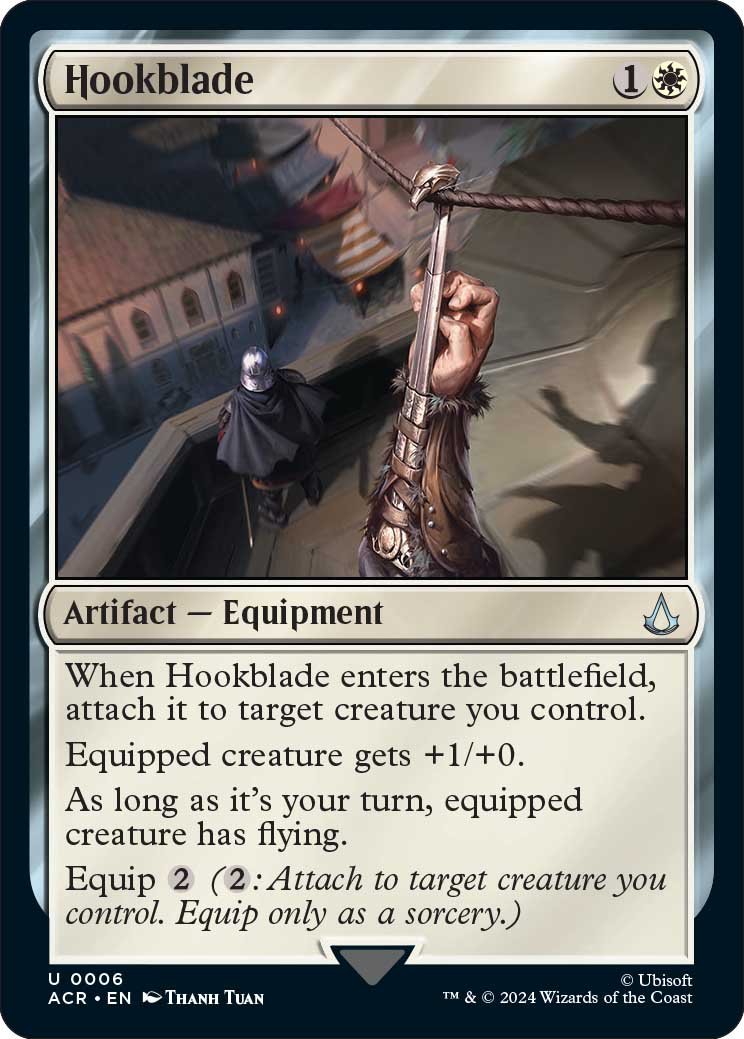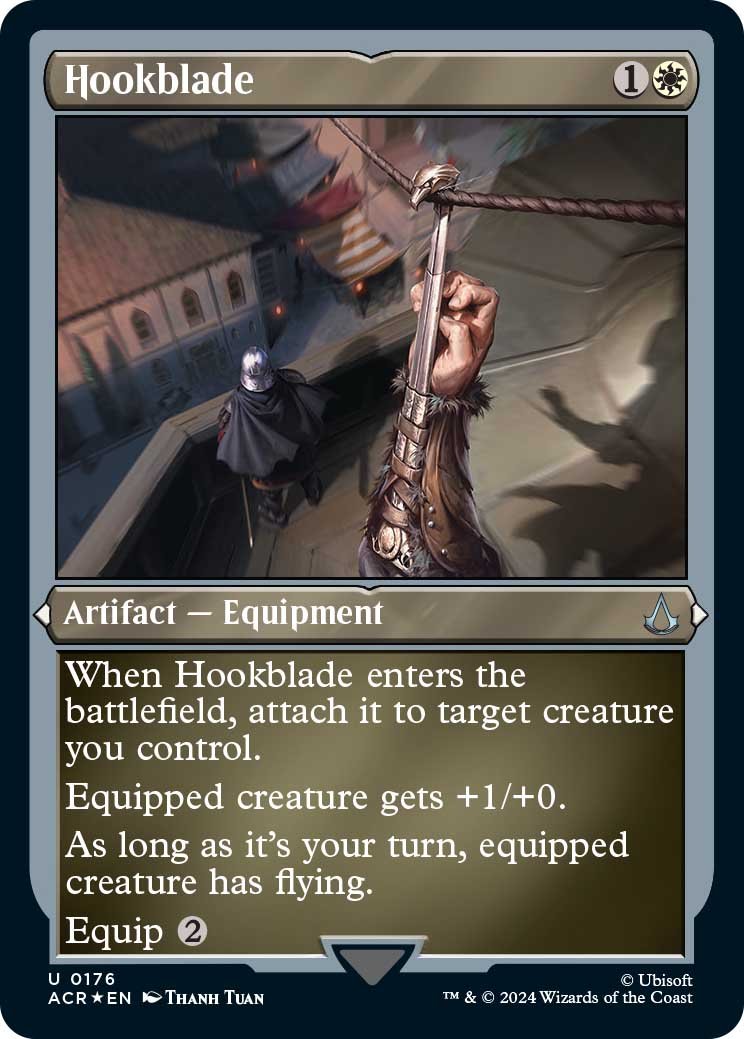Magic: The Gathering‘s Universes Beyond collections take Magic cards to all kinds of exciting new worlds. We’ve loved the adventures that Magic has cooked up for us via this format, which have included traveling through time and space in the Tardis with Magic‘s Doctor Who collection and meeting dinos with its brilliant Jurassic Park collection. Of course, we eagerly anticipate entering Magic: The Gathering‘s version of the Marvel multiverse sometime soon. But, more immediately, we’re taking a Leap of Faith into a brand-new destination. Yes, the Animus is ready to transport us into a universe we know and love. Magic: The Gathering‘s latest Universes Beyond collection is bringing us Assassin’s Creed decks. Below, we reveal four brand new Assassin’s Creed Magic cards for you to get excited about.
Nerdist Exclusively Reveals 4 New Cards From Magic: The Gathering‘s Assassin’s Creed Collection
We’re excited to exclusively share four new Magic cards that you’ll be able to find in the Assassin’s Creed Universes Beyond collection. These four cards are The Capitoline Triad, Hookblade, Restart Sequence, and Bleeding Effect. You can check out their Main Set forms below.




Assassin’s Creed true hearts will recognize these four features of the game, now in Magic card form. It’s always fun to see one version of a game translated into another. For example, Assassin’s Creed‘s “scientific” Bleeding Effect phenomenon becomes an enchantment. We also enjoy seeing quotes and other Assassin’s Creed Easter eggs pop up on these Magic cards.




Of course, these cool cards also come in Foil-Etched versions, which the sly assassin will be able to snatch up from the pile.

Finally, you can check out The Capitoline Triad in its unique Borderless form. We wouldn’t want these scientists-turned-gods, seen through a Magic: The Gathering lens as “God Artificers” staring down… or up from a table… at us.
More About Magic: The Gathering‘s Assassin’s Creed Decks

Of course, there are many more than just four cards coming to Magic: The Gathering‘s Assassin’s Creed collection.
A release shares:
The Animus has a new destination: Magic: The Gathering. Take a Leap of Faith into a new format of the game you love and find the weapons, characters, and real-world locations waiting on the battlefield. The only way to uncover the secrets of the past is to follow in the footsteps of the assassins who came before, and if you’ve learned anything, it’s that you must be swift, precise, and never show your hand.
Here are some of the product highlights you can look forward to as you build your new order.
COLLECTOR BOOSTERS: Get decked out like a master Assassin with Collector Boosters full of Rares, shining foils, and exclusive special treatments. Every pack contains 2 Foil-Etched cards!
BEYOND BOOSTERS: These 7-card boosters provide a curated opening experience for fans, including a Borderless card and shining foil in every pack. The past is yours to explore!
BUNDLE: Leap into history with a box full of Assassin’s Creed-themed cards and accessories, including 9 Beyond Boosters, a special alt-art promo card, 40 Lands, and more.
STARTER KIT: Your Assassin training starts here. Gear up for your first games of Magic with two Assassin’s Creed-themed decks and learn the ropes with the included guide.
When Will Magic: The Gathering‘s Assassin’s Creed Decks and Cards Release?
So, when will you be able to don your hood, grab your dagger, and enter the world of Assassin’s Creed via the vision of Magic: The Gathering? The Magic: The Gathering Assassin’s Creed collection will be released on July 5.